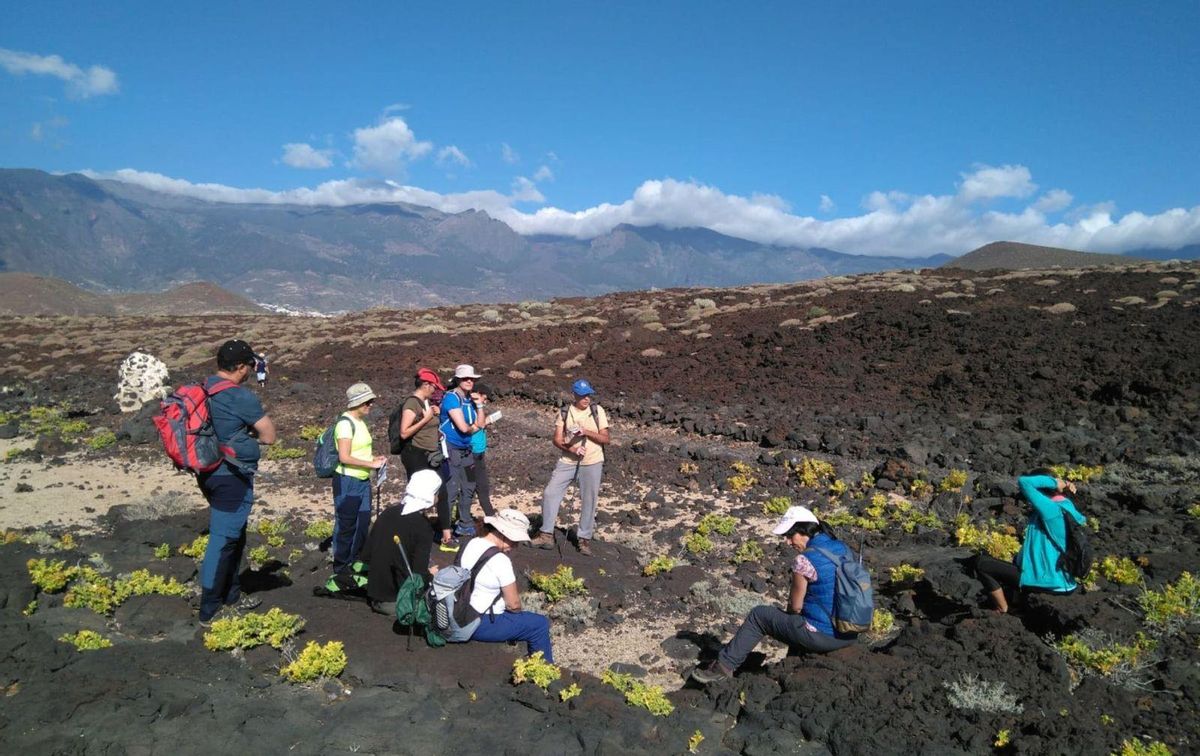The Environmental Volunteering Office of Tenerife was created in 2004 by the Island Council with the management of the dependent company Ideco. The objective of the organisation, which is reinforced with more human resources, is focused on guiding and encouraging non-profit entities, public bodies and private groups to organise activities for the conservation, restoration and dissemination of the cultural and natural heritage of the Island.
[–>
Twenty years are nothing, according to the lyrics of the tango, but they can go a long way. This is the case of the Participation and Environmental Volunteering Office of the Tenerife Island Council, unique in Canary Islands, which has gone from sporadic and isolated actions at the beginning in 2004, to the planned 400 for 2024 with the same objective: raising awareness among citizens about caring for the land. In April, 41 activities are scheduled, more than the 30 days of the upcoming month. The island corporation enhances the entity, managed by the public company Ideco, with more staff to add to the current three technicians and the provision of an electric van. In an interview with EL DÍA, the coordinator, Yayi Martín Díaz, who has been in the organisation for 18 years, and the insular director of Natural Environment, Pedro Millán, who founded it, discussed.
[–>Participation and volunteering. These are the two premises of communal actions that the Office carries out. Among others, beach and seabed cleanups, eradication of invasive exotic flora such as agave and others; talks and workshops in educational centres, or waste collection. Millán recalls his origins as a technician in this kind of particular full-circle closing and the counselor who promoted the initiative, Wladimiro Rodríguez Brito.
Yayi Martín explains: «We support and advise associations and groups or individuals with an interest because the main focus is volunteering. We take care of logistics and bureaucratic work.» Throughout the Island. The philosophy of avoiding any protagonism underlies the entire conversation. The intention is to channel proposals and provide them with minimum organisational and safety requirements to mediate, for example, with managers of protected natural areas. Coordination is key. They also organise their own activities, but these are the least.
From a one-time initiative to campaigns, sponsorships, and the continuity of what has been carried out in a specific area for two years. It doesn’t stop at just cleaning the beach or trail. A multifaceted approach to the custody of public and private land. It’s not just an environmental issue; it can be geographical, geological, cultural, or ethnographic because they also focus on knowledge recovery. A way to highlight the supervised space and a gateway for the public to get to know them and get involved in their protection without thinking it is solely the responsibility of the administration when it is also their heritage.

Activity carried out under the auspices of the Insular Office of Environmental Volunteering in a coastal area in the South of Tenerife. | | ED / José Domingo Méndez
Over time, a network is created, a social fabric linked to the environment but open to any type of association like neighbourhood ones; the important thing is the activity they want to lead. Organised groups have been involved in direct actions for a long time, from mountaineers to scouts, but «there’s room for everyone, retired seniors or young people». Yayi values the word ‘connect’. To associations, the community, the school, the municipalities… Links of the same chain.
«Taking Action»
[–>
The Office’s coordinator is clear that “we must take action and not just assume that nothing will change; at least we’re trying”. She reflects: “It’s wonderful when someone collaborates, and I’m still amazed by the strength of the volunteers, how they connect with the space and want to protect it”. Millán points out that it is now necessary to create a regulatory framework that allows voluntary action and provides legal certainty to entities. He notes that the Government of the Canary Islands is currently developing the draft of the new Volunteering Law.
The Island Councilor for Natural Environment, Blanca Pérez, values: “Every day it is more important to involve society in caring for the land we live on, and the Office plays a fundamental role.” She believes that “many people want to contribute to the conservation of the natural environment and have the right tool to channel it”. Pérez announces that “we will strengthen the work with environmental volunteering entities in activities to clean natural spaces, beaches and seabeds within the competencies we have.” She adds, “through a programme that engages the island’s groups with two essential milestones this year, which are the celebration of the Office’s twentieth anniversary and World Oceans Day, commemorated on June 8th”.
Another key is to raise awareness among locals and newcomers (residents and foreigners) to take care of natural spaces and pass through them without leaving a mark. Martín and Millán understand that “there has been improvement, as evidenced by the clean-up of seabeds. We used to find everything, and now they’re in very good condition overall”. An Office with twenty years of land custodianship (fragile) on the Island.
Subscribe to continue reading















